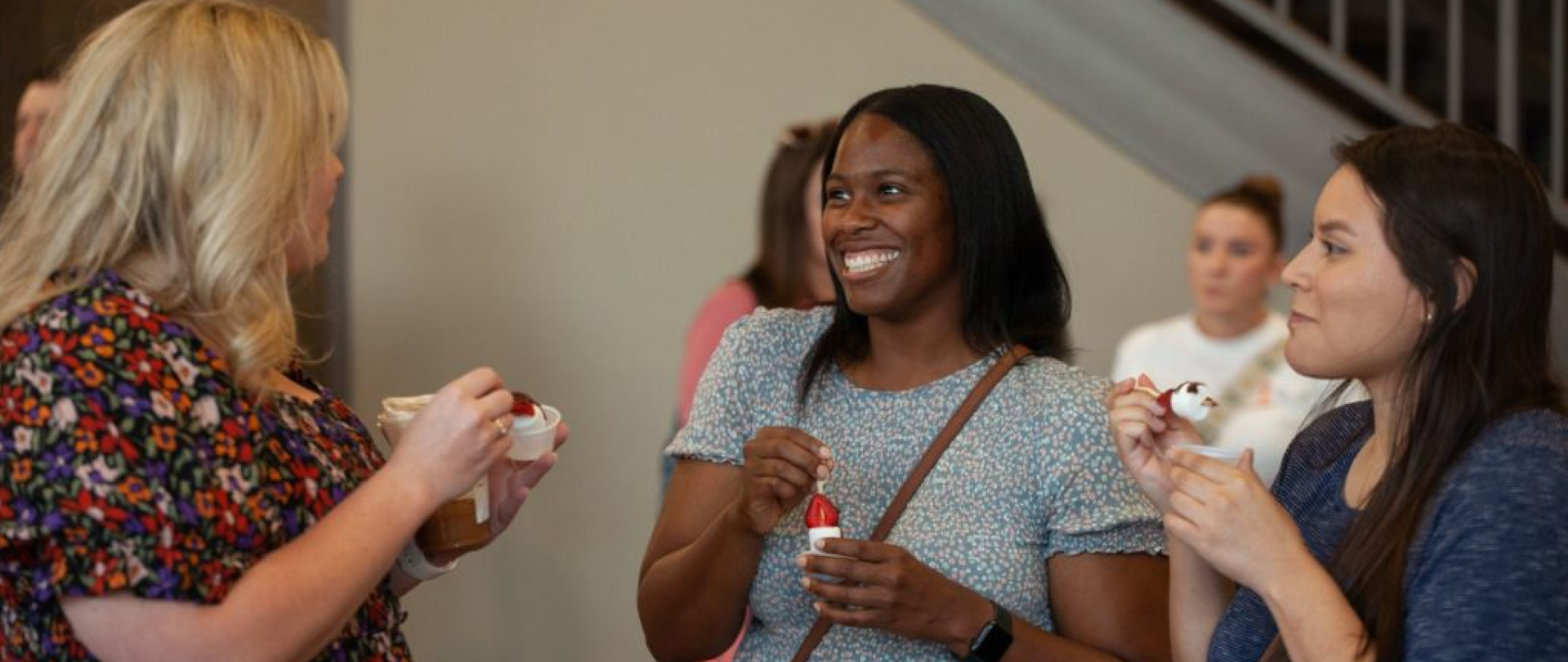Introduction: Understanding Spiritual Singles in the Church Context
When we talk about spiritual singles in the church, we’re diving into an often overlooked yet vital part of the congregational family. These are individuals who, regardless of their reasons for being single, bring unique perspectives and opportunities to church life. For starters, spiritual singles are not a monolithic group; they come from various walks of life, ranging from young adults who’ve never married to those who are widowed or divorced. What binds them together? A common desire to pursue a deeper relationship with God and contribute to their faith community. This demographic’s significance goes beyond mere numbers. They often possess the flexibility and availability to serve in roles that others, especially those with family obligations, might not. From volunteering in church events to leading ministry initiatives, their contributions are invaluable. Moreover, their diverse life experiences enrich the church’s understanding of faith, resilience, and community. Recognizing and leveraging the potential within spiritual singles not only strengthens their faith journey but also bolsters the church’s mission in embodying a more inclusive and vibrant community.
Spiritual Singles: Who Are They?
Spiritual singles are individuals within the church who focus deeply on their personal spiritual journey, often prioritizing growth, mindfulness, and a connection to a higher purpose. Unlike their counterparts who might be focused on family or traditional roles within the church community, spiritual singles often seek to explore and express their faith in unique ways. Their approach to spirituality is individualistic, yet it doesn’t mean they are isolated. They actively participate in church activities and community service, applying their personal spiritual insights to contribute meaningfully. This demographic includes both those who have chosen to stay single and those who are single by circumstance, but their common ground is their dedication to spiritual enrichment and understanding.
The Unique Challenges Faced by Spiritual Singles
Spiritual singles in the church navigate a unique set of challenges. Often, they find themselves in a spot where their single status is misunderstood, leading to feelings of isolation within their faith communities. Many churches, focused on family and marital relationships, unintentionally overlook the contributions and needs of single individuals. This oversight can make spiritual singles feel less valued, pushing the narrative that one’s spiritual journey must be tied with marriage or family life. Also, spiritual singles might struggle with finding their place in ministry activities often designed for couples or families, limiting their engagement and spiritual growth opportunities. Furthermore, the pressure to find a partner within the church can compound the issue, making it harder for singles to focus solely on their personal spiritual journey. Being aware of these challenges is the first step in creating a more inclusive and supportive environment for all members.
The Importance of Spiritual Singles in the Church Family
Spiritual singles hold a unique and vital role in the church family. They bring diverse perspectives, talents, and gifts that enrich the congregation. Their flexibility and availability often mean they can take on roles and tasks that might be more challenging for those with family obligations. These individuals can dedicate more time to service, mission work, and leadership roles, making them invaluable in spreading the faith and assisting in church activities. Their presence also highlights the importance of inclusivity, reminding the church that being part of a family doesn’t just mean the traditional household setup. Through their involvement, spiritual singles offer a model of Christian living that emphasizes personal faith development and community contribution over marital status. Understanding and supporting their contributions can lead to a more vibrant, dynamic, and effective church body, where every member, regardless of their life stage, feels valued and has a place.
Opportunities for Spiritual Singles to Contribute
Spiritual singles bring unique opportunities to our church communities. They can dive deep into volunteer work, mentorship programs, and mission trips with a flexibility that is often harder for those with family obligations. Singles can focus their energy and time, making a strong impact in areas that need intense dedication. They are also key in leading youth and singles ministries, offering perspectives and experiences that resonate with those in similar life stages. Furthermore, their involvement in prayer groups, community outreach, and church leadership positions adds vital diversity to our faith communities. In essence, spiritual singles enrich our congregations by fostering a sense of inclusivity and showing that every member, regardless of marital status, holds indispensable worth in our collective spiritual journey.
Building Meaningful Relationships: How the Church Can Support Spiritual Singles
Church communities have a unique chance to support spiritual singles, helping them forge significant connections that go beyond Sunday services. It’s not just about setting up events but creating environments where singles feel valued and understood. Encouraging group activities that emphasize shared values and interests can lay the foundation for these meaningful relationships. Think book clubs, volunteering opportunities, or small discussion groups that allow for deeper conversations.
Leaders should also remember the power of inclusivity. It means making sure sermons and church-led discussions touch on topics relevant to single members, showing that their experiences matter. Moreover, mentorship programs can offer singles guidance on navigating life while staying true to their faith, providing both spiritual and practical support.
Finally, fostering a welcoming atmosphere is key. Let’s face it; walking into a room where you feel like the odd one out isn’t fun. So, ensuring that church events and groups are open to everyone, regardless of marital status, can help singles feel more at home.
Supporting spiritual singles isn’t about matchmaking or finding everyone a partner. Rather, it’s about recognizing their value in the church community and helping them build relationships that enrich their spiritual journey.
Spiritual Growth: Navigating Faith as a Single
In church, being single isn’t just a status; it’s a chance for deeper spiritual growth. Here’s the thing: when you’re solo, you’ve got this unique space to focus on your relationship with faith without many of the distractions that can come from being in a partnership. It’s not about waiting around for something to happen in your life, but seizing the opportunity to explore what really matters to you on a spiritual level.
First off, singles can dive into their faith with more freedom. Less family obligations mean you can spend more time in prayer, meditation, or whatever form of spiritual reflection works for you. This isn’t just about ticking a box; it’s about forming a genuine, deep connection with your beliefs.
Secondly, being single opens up the doors to serve. Many find that they’re able to commit more fully to volunteer opportunities, missions trips, or church activities. It’s not just about filling time; it’s about making a tangible difference in your community and beyond, driven by your spiritual convictions.
And let’s talk growth. Navigating faith as a single isn’t a solo journey. It’s about building relationships within the church, finding mentors, and maybe even guiding others. It’s a two-way street of giving and receiving support that can lead to significant personal and spiritual development.
Remember, being single in the church isn’t a holding pattern; it’s a dynamic runway for spiritual exploration and growth. It’s about embracing where you are right now and using this time to deepen your faith in ways that might not be as accessible otherwise.
Engaging Spiritual Singles in Ministry and Service
Churches often overlook spiritual singles, yet they offer unique perspectives and energies in ministry and service. Instead of sidelining them, embracing and engaging spiritual singles can revitalize church programs and outreach efforts. First, recognize that spiritual singles are not a monolithic group; they have diverse gifts and passions. Second, create opportunities that utilize these unique talents. Whether it’s leading a youth group, participating in mission trips, or driving community service projects, there’s a place for everyone’s contribution. Finally, involve them in decision-making processes. This inclusion not only empowers spiritual singles but also enriches the church’s approach to meeting community needs. By valuing and integrating spiritual singles into the fabric of church activities, we build a more vibrant and inclusive community. Remember, it’s about creating a space where everyone feels valued and has the opportunity to serve.
The Role of the Church in Embracing and Valuing Singles
The church plays a crucial role in uplifting and recognizing the value of singles in its community. It’s not just about marriage sermons or family events. The church should be a place where every individual, married or single, feels equally valued and finds their purpose. It’s about creating spaces where singles can serve, lead, and grow without feeling sidelined or overlooked. The church can foster this by promoting inclusivity in all activities, emphasizing the unique contributions singles bring to the table. This includes recognizing their flexibility, often more available time for service and missions, and the diverse perspectives they offer, enriching the church’s understanding and outreach. Furthermore, the church should actively counter the stigma that singles are in a ‘waiting phase’ for marriage, instead highlighting their current value and capability. By doing this, the church not only supports its single members but also strengthens its community, making it a more vibrant, diverse, and effective body.
Conclusion: Moving Forward Together
As we’ve seen, spiritual singles have a unique and valuable role in the church. They’re not bound by the same responsibilities as those with families, giving them flexibility and time to invest in various church activities and missions. Here’s how the church and spiritual singles can move forward together: First, the church can actively create spaces for singles to contribute their talents and skills, recognizing their contributions just as much as those of families. This includes leadership roles or missions that might be more challenging for those with children. Second, spiritual singles should feel encouraged to seek out and embrace these opportunities, bringing their full selves to their church communities. By doing so, they not only enrich their lives but also those around them, fostering a diverse and vibrant church community. Lastly, it’s essential for everyone in the church to remember that every member, single or not, is a vital part of the church body. Together, harnessing the unique strengths and perspectives of each member, the church can grow stronger and more inclusive. Moving forward together means embracing this diversity as a gift, allowing it to guide us into a future where every individual is celebrated and utilized for their unique contributions to the church’s mission.










